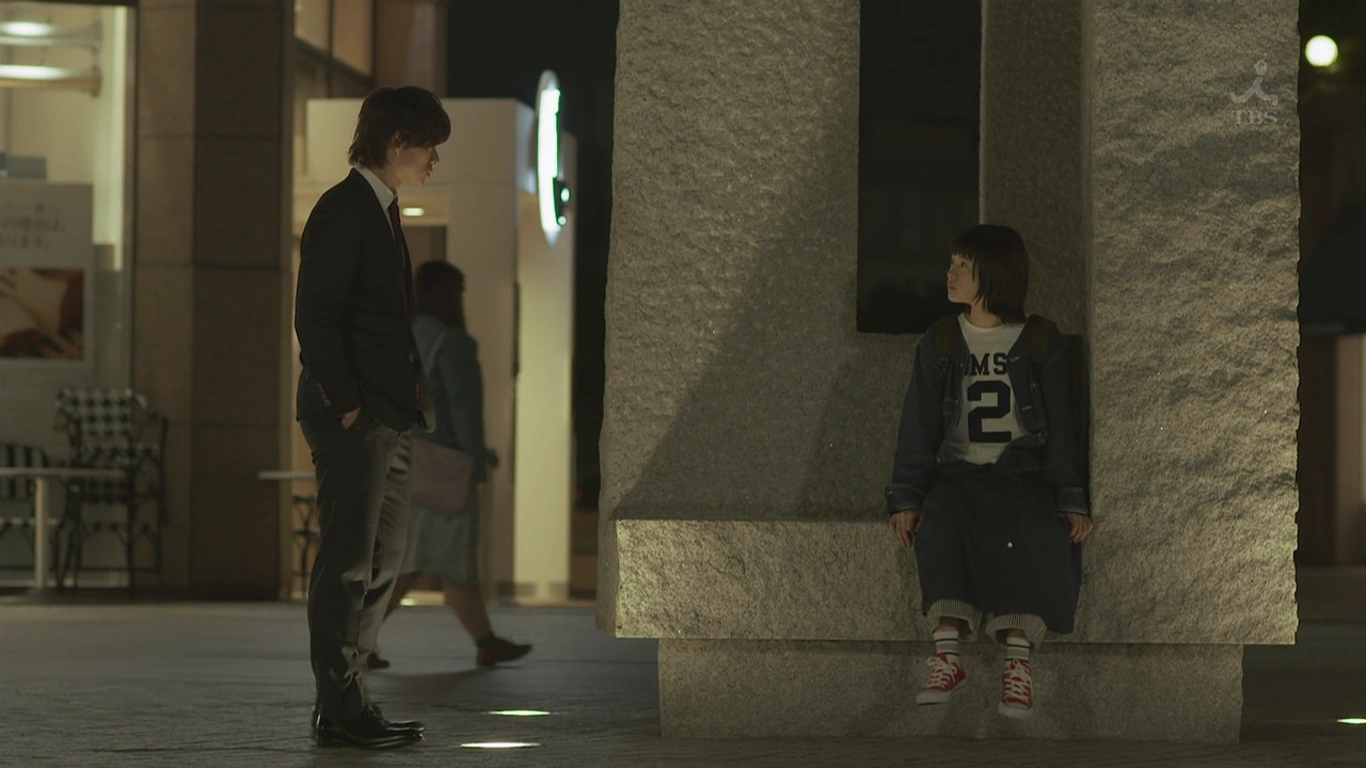Few people seem to understand the importance of "ironically good" shows. Have you ever watched something, and thought all the way through: "This is absolutely awful. So why do I love it so much?" That's what Hana Yori Dango has become for me; a nostalgic favourite, but also a seriously outdated romance-melodrama that thrives on chemistry alone. The author of the original manga clearly knew that she couldn't afford to lose her most popular work (although, really, she could have just put more into Cat Street, the only of her works I've actually loved), thus this strange little spin-off came into existence.

This story takes place ten years after Tsukushi and the legendary F4 move on from Eitoku, and the school is now in decline. Their predecessors, the Correct 5, work to prevent the quality of the school from dropping by going on 'peasant hunts' and purging secret poor people. The leader falls in love with a secret peasant.
Sound familiar? That's because it is. Despite somewhat minor differences (I was immediately thrown by the fact that Oto, the female lead, used to be rich), this season borrows heavily from the original.
There is definitely less star power here than in the first season - after watching the first few episodes, I only recognised two or three of the actors. I suppose a story like this is so popular with the teenage demographic in Japan (I mean, read 85% of the shoujo manga out there and you'll understand) that the team was confident that they could thrust these rising stars into fame.
Hana Sugisaki, for example, is a delight, and I'm glad this show was able to introduce me to her. She's perfect for the role - she never overacts, and carries the melodramatic moments with subtlety and grace.
Otherwise, however, the acting is all over the place. Hirano Sho is reliably standard; he doesn't any massive lapses in ability, nor can he convince me that his character is any deeper than what is written on paper. The other young stars, so far at least, prove no different.
 I expected memorable main characters, the pinnacle of the trope they represent, but everyone else thus far is under-developed. The C5 are basically irrelevant - they have no staying-power in comparison to the iconic F4. They are very clearly a poor replica of the clique, and it takes a lot of my power to try and remember the
I expected memorable main characters, the pinnacle of the trope they represent, but everyone else thus far is under-developed. The C5 are basically irrelevant - they have no staying-power in comparison to the iconic F4. They are very clearly a poor replica of the clique, and it takes a lot of my power to try and remember the
The only thing that Hana Nochi Hare seems to learn from Hana Yori Dango is that it's far better paced, and balanced tonally. The comedic and dramatic elements feel more integrated, creating consistency. I remember season two of Hana Yori Dango in particular wallowed in the separation arc for too long, lacking the light-hearted tone of the first series.
The word 'outdated' certainly does come to mind when I think of Hana Yori Dango. It's a relic of the past that the author refuses to put to bed, because she's aware that her poorly written love story became a sensation that changed the shoujo genre. Hana Yori Dango, one could argue, popularised the 'opposites attract' trope almost single-handedly. And yet, it clearly isn't outdated. I'm not the only one struck lovesick by the familiarity of Hana Nochi Hare - it's receiving around 10% ratings, which means it's near the top of the rung). Money is everything, the male lead is a brat, and love interests are thrown down like road obstacles whenever the plot crawls. That's all this show is on the surface. But it's everything that made me love drama in the first place, and I'm going to treasure this bout of nostalgia while I can.

No comments:
Post a Comment